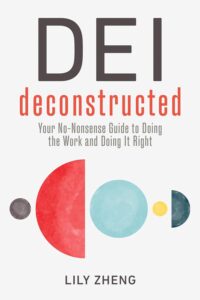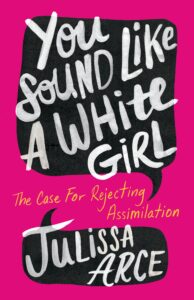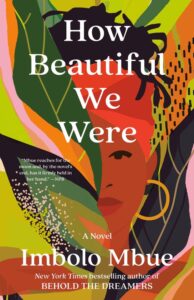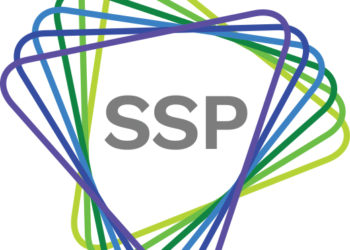Editor’s Note: Today’s post was curated by Damita Snow. Damita is Director, Accessibility & Diversity, Equity and Inclusion, Publications & Strategy at the American Society of Civil Engineers.
As noted in prior Scholarly Kitchen posts, we learn from “each other and about each other through reading.” It’s a way to develop and strengthen relationships within our community through compassion, understanding, celebration and camaraderie. Let’s revisit the “Connecting by Reading: A Selection of Books About Race and Racism: Part 1” and “Part 2” from 2020. Both posts were written after the murder of George Floyd on May 25, 2020. They were also written shortly after SSP “Reaffirmed our Commitment to Diversity, Equity and Inclusion” (DEIA). It’s been four years and, let’s be honest, the energy around DEIA has waned. There is still work that we as publishers and humans must do to address the inequities in our industry and more importantly, our shared communities. This is part 1 of a two part series where we have asked members of the SSP community to recommend books about DEIA matters. Part 2 is now available here.
Eleonora Colangelo:
 Penned by an expert in the field – a seasoned strategist, a LinkedIn Top Voice on Racial Equity, and a Forbes D&I Trailblazer –, DEI Deconstructed – Your No-Nonsense Guide to Doing the Work and Doing It Right by Lily Zheng. is an essential read for those aiming for effective DEI execution rather than merely seeking inspiration. Regardless of one’s professional standing – from full-time practitioners and internal employee advocates to mid-level managers and Chief Diversity Officers – the only prerequisite to fully embrace the practical knowledge imparted in this book is to understand that DEI transcends motivational rhetoric.
Penned by an expert in the field – a seasoned strategist, a LinkedIn Top Voice on Racial Equity, and a Forbes D&I Trailblazer –, DEI Deconstructed – Your No-Nonsense Guide to Doing the Work and Doing It Right by Lily Zheng. is an essential read for those aiming for effective DEI execution rather than merely seeking inspiration. Regardless of one’s professional standing – from full-time practitioners and internal employee advocates to mid-level managers and Chief Diversity Officers – the only prerequisite to fully embrace the practical knowledge imparted in this book is to understand that DEI transcends motivational rhetoric.
DEI indeed “isn’t just an art but a science.” Far from being a mere acronym, it encapsulates a complex ecosystem that navigates both social responsibility and organizational science. To approach DEI in this manner, Lily Zheng emphasizes in the Introduction the necessity of cultivating four foundational skills: open-mindedness, emotional regulation, critical thinking, and graciousness. This invitation acts as a pact between the reader and the author from the outset, underlined by the clarification that the book isn’t intended to delve deeply into theories of race, organizational sociology, or change management. Stressing pragmatic strategies above inspirational anecdotes, the book targets the democratization of change tools for practitioners.
Despite the growing prevalence of DEI, underscored by the widespread intake of DEI consultants following George Floyd’s murder, organizations continue to grapple with systemic inequities and the DEI-Industrial Complex – i.e., the unspoken bond between DEI and organizations that upholds an inequitable status quo. Constantly asking “what works?” serves as a significant thread across the narrative to address this paradox. Through this question, the author breathes new life into the guiding principle of another well-known contribution published by Iris Bohnet in 2016, illuminating the route towards gender equality through behavioral design.
The book’s structure, divided into three parts centered around DEI foundations (Part 1), solution-oriented pillars (Part 2), and a practical toolkit (Part 3), mirrors its instructive, results-oriented approach. Each chapter concludes with Takeaways encapsulating major discussion points, and Exercises and Reflections to inspire readers to walk the talk. The reader is undoubtedly captivated by the coherent intertwining of the chapters. Chapter 2 sets the pace for accountable DEI practices, laying the foundation for later chapters (such as Chapter 9) that catalog effective practices to enhance internal DEI processes and tangible DEI outcomes.
Among the distinct standouts of the book, two are particularly noteworthy. The first emerges from Chapter 2, where the author presents DEI 101 as an array of feasible targets and approaches aimed at nurturing accountability. In fact, accountability, deemed the ‘holy grail of DEI work’, plays a vital role alongside stakeholder trust, which is the determining factor in the success or failure of DEI strategies within organizational precincts. Secondly, the book underscores the need to institutionalize the position of DEI practitioners. This evolving cadre of professionals’ merges education, assimilation, and consultation to effectively implement ISO 30415:2021 — the Human Resource Management – Diversity & Inclusion standards across diverse business landscapes. The author stresses the necessity of such specialized acumen for holistic organizational transformation, and we can only commend a detailed exploration of it, as ‘DEI expertise means understanding algorithmic justice and how to achieve it forward and backward’.
Michie Gluck:
 You Sound Like a White Girl: The Case for Rejecting Assimilation, by Julissa Arce, is the story of the rise of an 11-year-old, undocumented Mexican immigrant who came to the United States in 1994 and reached the pinnacle of “American” success. She learned English without a Spanish accent, graduated from college with honors, and had a prestigious career. But then she realized that all she had done to assimilate into American culture was a shedding of her authentic self to belong in a white-dominated world. Twenty years and many emotionally exhausting steps later, she became an American citizen, without the satisfaction of having “made it” because she was still viewed as an outsider in this country.
You Sound Like a White Girl: The Case for Rejecting Assimilation, by Julissa Arce, is the story of the rise of an 11-year-old, undocumented Mexican immigrant who came to the United States in 1994 and reached the pinnacle of “American” success. She learned English without a Spanish accent, graduated from college with honors, and had a prestigious career. But then she realized that all she had done to assimilate into American culture was a shedding of her authentic self to belong in a white-dominated world. Twenty years and many emotionally exhausting steps later, she became an American citizen, without the satisfaction of having “made it” because she was still viewed as an outsider in this country.
The book follows Arce’s journey of rediscovering herself and concluding that assimilation had left her feeling that she has lost more than she had gained. It was time to fight back for true freedom. To accomplish that, she says, there needs to be “new spaces, systems, and rules for truth and justice for all.” The fight is stronger when all people work together and show up for each other instead of incorporating the lies of assimilation as their personal goal. The goal is, in fact, justice. As Arce states, to dismantle the inherent white supremacy of US assimilation, People of Color cannot turn against each other but instead need to face the systems that oppress them together. This means “acknowledging the ugliness of the past, admitting to the sins of America’s founding, and … knowing that the solutions are in us, not in the false promises of assimilation.”
Arce’s battle cry for change is to “seek justice. Assimilation, diversity, inclusion is not justice. Representation, equality, intersectionality, and freedom is justice.” We are our own saviors, she concludes, and the melting pot that defines America demands that we respect and nourish the people we have come from and celebrate who we are in our uniqueness. This is what truly makes Americans.
Susan J. Harris
 With How Beautiful We Were, Imbolo Mbue has given us a beautifully written novel that is by turns deeply sad, enraging, and inspiring. The narrative takes place across nearly four decades in a fictional African village that is progressively ravaged by an oil company. As the soil and groundwater become contaminated, children fall ill. Through Mbue’s evocative writing, the reader is led to experience the villagers’ sense of helplessness and the improbability of rectifying this environmental injustice in a dictator-led country in which wealthy American oil company executives wield power. And yet, Mbue explores how a shared sense of outrage and the will to protect one’s family and community exert an immense power as well. In this deftly told story centered around a young woman Thula, we observe how the essence of such power, embodied in hope, creates a singular opportunity for higher education (in the “Great City,” symbolic of New York City), draws allies to the cause, and organizes resistance. Each stride forward is complexly drawn and not without great sacrifice. Mbue employs a convention of narrator shifts chapter by chapter, beginning and ending with “The Children,” with interior chapters narrated by the protagonist Thula, her mother, grandmother, uncle, and brother. With Mbue’s deeply sensitive depiction of her characters’ passions, worries, and strengths, we are given a rich understanding of the emotional life, relationships, customs, and life events of the villagers from the perspective of different genders, ages, and positions in the family. Mbue is a masterful storyteller, whose prose is lyrical and beautiful. The story, as in real life, brings no easy solutions to environmental or other institutional injustices, but it stirs profound empathy for the characters caught up in them and great admiration for their deep communal bonds and strengths. And perhaps that is where we start.
With How Beautiful We Were, Imbolo Mbue has given us a beautifully written novel that is by turns deeply sad, enraging, and inspiring. The narrative takes place across nearly four decades in a fictional African village that is progressively ravaged by an oil company. As the soil and groundwater become contaminated, children fall ill. Through Mbue’s evocative writing, the reader is led to experience the villagers’ sense of helplessness and the improbability of rectifying this environmental injustice in a dictator-led country in which wealthy American oil company executives wield power. And yet, Mbue explores how a shared sense of outrage and the will to protect one’s family and community exert an immense power as well. In this deftly told story centered around a young woman Thula, we observe how the essence of such power, embodied in hope, creates a singular opportunity for higher education (in the “Great City,” symbolic of New York City), draws allies to the cause, and organizes resistance. Each stride forward is complexly drawn and not without great sacrifice. Mbue employs a convention of narrator shifts chapter by chapter, beginning and ending with “The Children,” with interior chapters narrated by the protagonist Thula, her mother, grandmother, uncle, and brother. With Mbue’s deeply sensitive depiction of her characters’ passions, worries, and strengths, we are given a rich understanding of the emotional life, relationships, customs, and life events of the villagers from the perspective of different genders, ages, and positions in the family. Mbue is a masterful storyteller, whose prose is lyrical and beautiful. The story, as in real life, brings no easy solutions to environmental or other institutional injustices, but it stirs profound empathy for the characters caught up in them and great admiration for their deep communal bonds and strengths. And perhaps that is where we start.
Imbolo Mbue is a Cameroonian American author, and this is her second published novel after Behold the Dreamers. Notably she began How Beautiful We Were prior to her debut novel and completed it nearly two decades later. This book review was informed in part by a video interview with Imbolo Mbue recorded for the Sun Valley Writers’ Conference (Ketchum, Idaho, July 2022).

Discussion
1 Thought on "Guest Post – Reconnecting by Reading: A Selection of Books About Diversity, Equity, Inclusion and Accessibility Part 1"
Although efforts in Equity, Diversity, and Inclusion (EDI) frequently recognize the importance of accessibility, there are times when it might not be as prominently featured as one would hope. For those seeking resources specifically focused on accessibility, I highly recommend exploring this comprehensive list of books dedicated to the topic: 10 Awesome Books for Adults about Disabilities, Accessibility, and Inclusion, https://easterseals.ca/en/10-awesome-books-for-adults-about-disabilities-and-accessibility/


